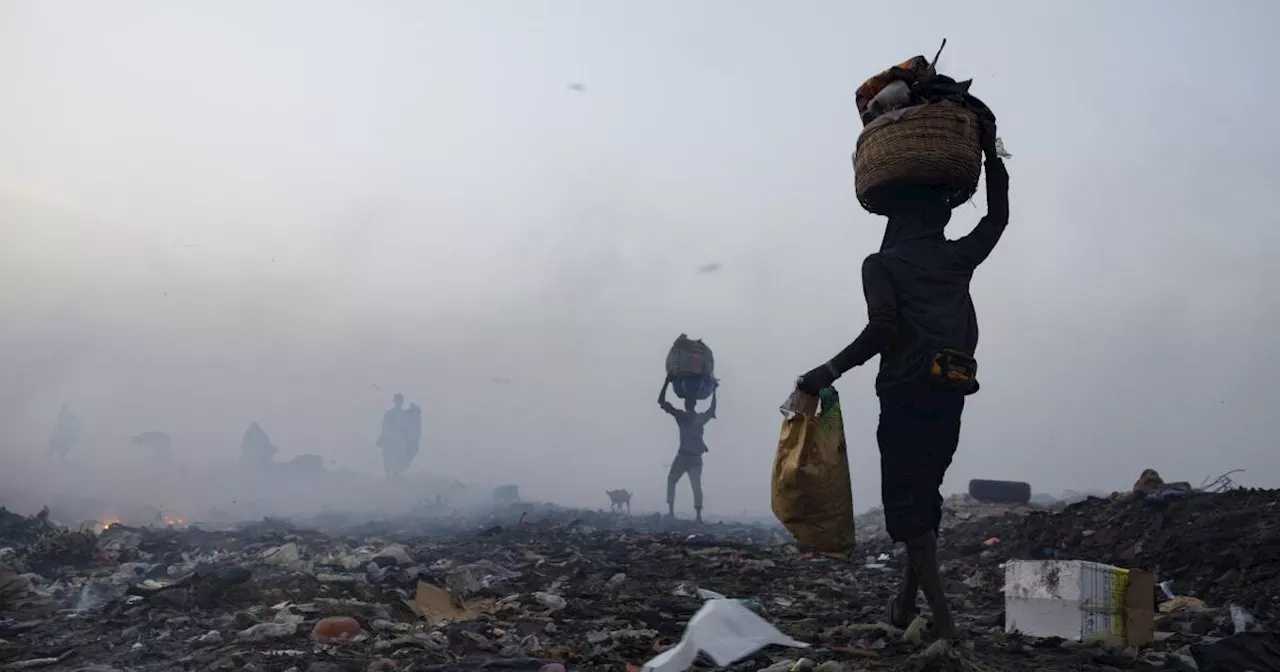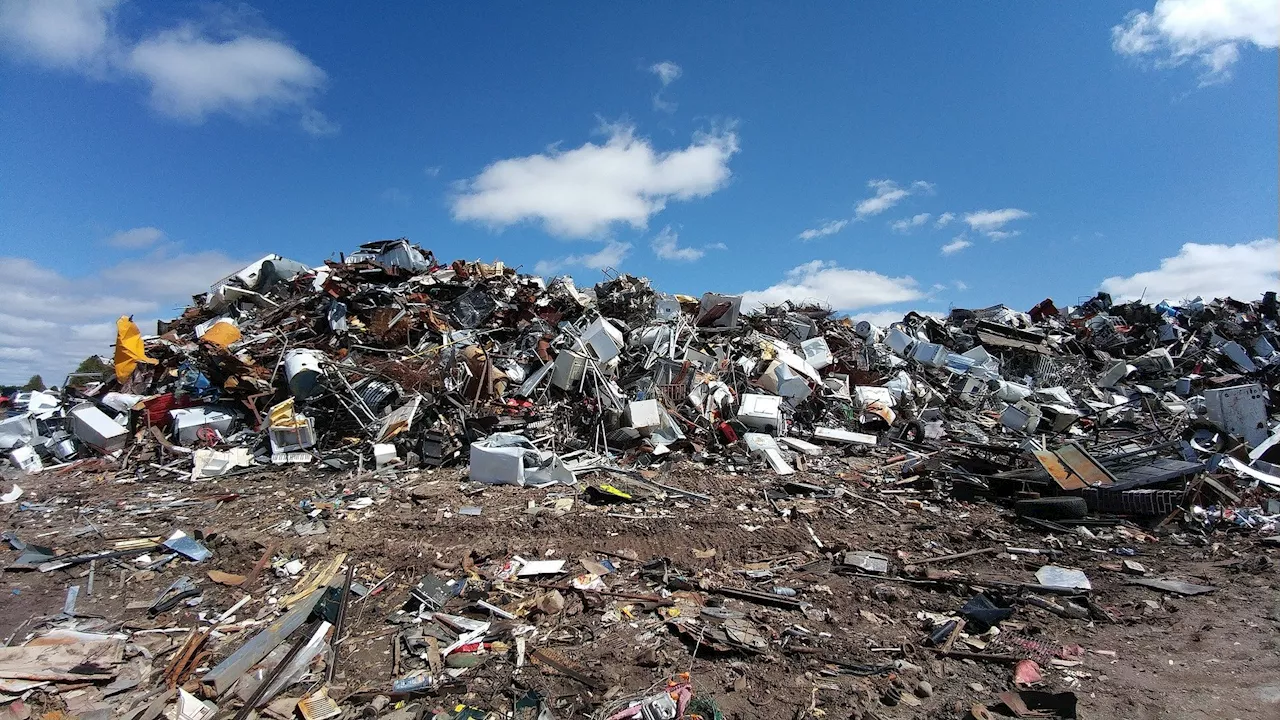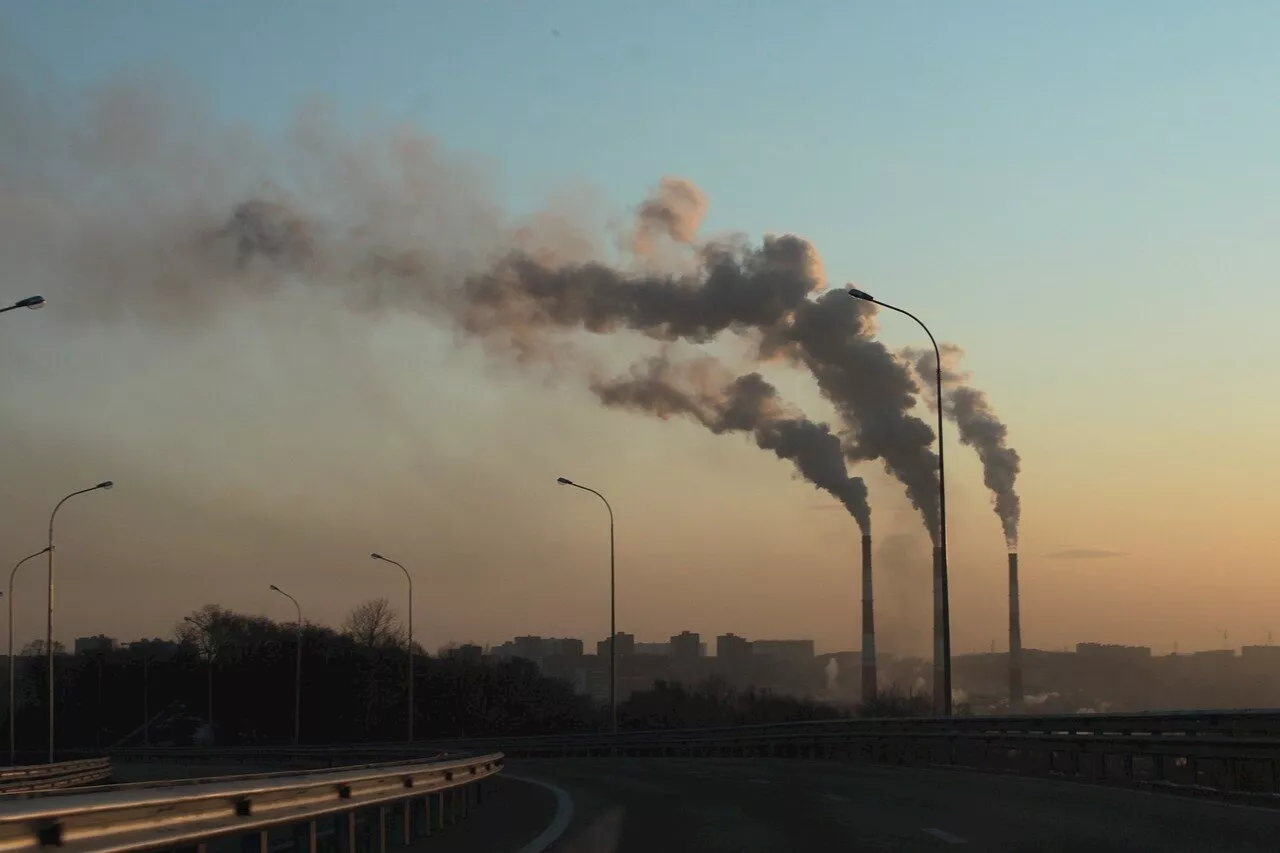A new report highlights the crucial role of reducing methane emissions in combating climate change and protecting the ozone layer.
Report: Cutting methane emissions key to fighting climate change and harmful ozone retrieved 23 September 2024 from https://phys.org/news/2024-09-methane-emissions-key-climate-ozone.html
This document is subject to copyright. Apart from any fair dealing for the purpose of private study or research, no part may be reproduced without the written permission. The content is provided for information purposes only.2 hours agoUse this form if you have come across a typo, inaccuracy or would like to send an edit request for the content on this page. For general inquiries, please use ourThank you for taking time to provide your feedback to the editors.
Your feedback is important to us. However, we do not guarantee individual replies due to the high volume of messages.to let the recipient know who sent the email. Neither your address nor the recipient's address will be used for any other purpose. The information you enter will appear in your e-mail message and is not retained by Phys.org in any form.Get weekly and/or daily updates delivered to your inbox.
Methane Climate Change Ozone Layer Emissions Pollution
United States Latest News, United States Headlines
Similar News:You can also read news stories similar to this one that we have collected from other news sources.
 Indirect emissions the key to agricultural emissions reduction, research suggestsFocusing on the direct emissions from the Australian agricultural sector is not the most effective way in dealing with the industry's greenhouse gas emissions, research from Edith Cowan University (ECU) has found.
Indirect emissions the key to agricultural emissions reduction, research suggestsFocusing on the direct emissions from the Australian agricultural sector is not the most effective way in dealing with the industry's greenhouse gas emissions, research from Edith Cowan University (ECU) has found.
Read more »
 Tidal wetlands study offers improved predictions of methane gas emissionsAn international study led by UAB researcher Ariane Arias-Ortiz, and published in Global Change Biology, has analyzed methane gas fluxes in more than 100 tidal wetlands and marshes in the U.S.
Tidal wetlands study offers improved predictions of methane gas emissionsAn international study led by UAB researcher Ariane Arias-Ortiz, and published in Global Change Biology, has analyzed methane gas fluxes in more than 100 tidal wetlands and marshes in the U.S.
Read more »
 Improved predictions of methane gas emissions in tidal wetlandsAn International study has analyzed methane gas fluxes in over a hundred tidal wetlands and marshes in the USA. The analysis has identified key environmental factors affecting methane emissions and has allowed a larger set of standardized data on greenhouse gas emissions in those ecosystems to be produced.
Improved predictions of methane gas emissions in tidal wetlandsAn International study has analyzed methane gas fluxes in over a hundred tidal wetlands and marshes in the USA. The analysis has identified key environmental factors affecting methane emissions and has allowed a larger set of standardized data on greenhouse gas emissions in those ecosystems to be produced.
Read more »
 Human activity now fuels two-thirds of global methane emissions, report findsGlobal methane emissions have risen faster than ever over the last 5 years, with at least two-thirds of annual methane emissions coming from human activities.
Human activity now fuels two-thirds of global methane emissions, report findsGlobal methane emissions have risen faster than ever over the last 5 years, with at least two-thirds of annual methane emissions coming from human activities.
Read more »
 Methane emissions are rising faster than ever, research showsThe world has not hit the brakes on methane emissions, a powerful driver of climate change. More than 150 nations have pledged to slash by 30% this decade under a global methane pledge, but new research shows global methane emissions over the past five years have risen faster than ever.
Methane emissions are rising faster than ever, research showsThe world has not hit the brakes on methane emissions, a powerful driver of climate change. More than 150 nations have pledged to slash by 30% this decade under a global methane pledge, but new research shows global methane emissions over the past five years have risen faster than ever.
Read more »
 Methane emissions are rising faster than everMethane concentrations in Earth's atmosphere increased at record speed over the past five years. At least two-thirds of annual methane emissions now come from human activities, including fossil fuel use, agriculture, and landfills and other waste.
Methane emissions are rising faster than everMethane concentrations in Earth's atmosphere increased at record speed over the past five years. At least two-thirds of annual methane emissions now come from human activities, including fossil fuel use, agriculture, and landfills and other waste.
Read more »
